Why Christianity is 'Divine Foolishness'
Sam Hailes
Nick Page can’t remember a time before writing. At the last count he'd written over 70 books for both children and adults. Writers block? According to Nick, it's a “myth”.
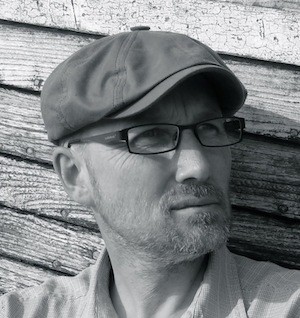
“When I was about 8, I used to write little books and sell them to my friends at school. I was always going to be a writer or a publisher and I chose the path of virtue I think,” he says smiling.
The life of Jesus, worship music, the Bible, preaching, the early church, even the Ark of the Covenant. In terms of Christian publishing, it’s difficult to find a topic Nick hasn’t written a book on.
“What I do is look for those interesting facts,” he explains, talking about his latest trilogy of books on the life of Jesus and the early church: The Wrong Messiah, The Longest Week and Kingdom of Fools.
“The history thing started by sitting in a service listening to a sermon on Zacchaeus. It wasn’t the most compelling sermon I’ve ever heard and I just sat there thinking ‘how tall was Zacchaeus?’”
“I went into Paleoarchaeology which is the measurement of bones so you can measure how tall people were. I found out how tall he was. I’m not telling you the answer, you have to read the book.”
“The big thing that comes out of this is Jesus was a Mediterranean peasant. He wasn’t as he was depicted when I was growing up; a six foot tall willowy blonde wandering around Galilee with a nighty on. He just wasn’t that guy.”
Jesus was a Mediterranean peasant. He wasn’t as he was depicted when I was growing up; a six foot tall willowy blonde wandering around Galilee with a nighty on.
“He was olive skinned and had dark hair. He would be stopped at every airport check going right now.”
Written at a popular level, Nick says that anyone who is interested in history will enjoy the books.
Going back to the early church
The latest, Kingdom of Fools is a biography of the early church. What does Nick think about those who want to go back to the early church?
“Which church do you want to go back to? Do you want to go back to the one in Corinth, with the incest and infighting? Let’s not look at it through rose tinted lenses; it had its problems."
“The big thing I think we don’t get about the early church is we think of them as fully formed Christians. They weren’t. They were learning the whole time. Those 3000 people who became converts at Pentecost, what did they go back to their places with? They didn’t have a DVD or a discipleship pack They just had a few stories.”
What can we learn from the early church?
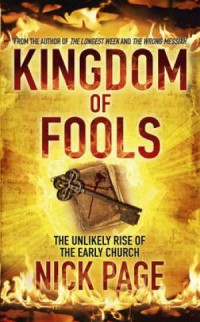
“For the first time in the West it’s abnormal to be a Christian. That was their life for the first 300 years, they were viewed if not criminals than at least subversive weirdos, hippies and strange people."
“That’s where the title of the book Kingdom of Fools comes from, it comes from an early church critic called Celsus; a pagan who claimed Christianity only attracted the dishonourable, the stupid and the weak. Paul himself doesn’t deny that he says the wisdom of the cross appears foolishness."
“One of the things we need to rediscover from the early church is the divine foolishness of Christianity; the way that it is in fact counter cultural. I think for far too long in the west we’ve followed the culture of the prevailing societies around us."
“We’ve been quite happy with warfare, riches, conspicuous luxury, idolatry. We haven’t stood out. It’s going to become more uncomfortable for us and it’s a good thing."]
Writers block?
I ask Nick where he gets the idea for his books from. It’s a question he gets a lot.
“It comes from poverty,” he says. “It is my job, if I don’t have ideas for books I don’t make money.”
“Writers block is a myth. I don’t want to diss anybody because some people genuinely have a problem but actually you never hear of a plumber having 'plumber's block'. You don’t hear them come in and say 'I can’t fix this I just don’t have an idea.'"
“If I had one piece of advice for writers it would be don’t be scared of the blank page, just go for it.”
One of Nick’s books is titled What Happened to the Ark of the Covenant? I ask him where it is now.
“Buy the book,” he says.
“There’s a lot of emphasis on what happened to the Ark of the Covenant. You always have some nutty American explorer claiming to have found it. I think the interesting thing is people stopped talking about it. It just disappeared entirely and nobody seems to miss it.”
“Nobody in Old Testament times was remotely worried about it because prophets came in and said ‘actually it was never really about that’. God’s presence was never about one place. Why did they suddenly realise they didn’t need it? How had their understanding of God changed?”
Singing nonsense
One of Nick’s most controversial titles is And Now Lets Move Into A Time Of Nonsense.
“The title came from a friend of mine who used to always mock this idea of 'now we’re moving into a time of this that and the other'. 'Now we’re moving into a time of worship'. He said: ‘Shall we move into a time of coffee?’”
Songwriters are scared to step out and do something different lyrically because they feel it won't get in the Spring Harvest songbook
Explaining the subtitle of the book, ‘Why worship songs are failing the church’, Nick admits it had been something he had been concerned about for a long time.
“With so many worship songs they do this thing I call: ‘I can’t believe it’s not the Bible’ where you think it’s scripture, but it isn’t scripture. Or they take this bit of scripture and mangle it and force it and put it on a false diet so that it will fit vaguely into the melody and they think that’s enough. That isn’t enough. If you’re going to worship you have to have your mind fed in terms of being inspired to worship.”
Nick is intrigued that audiences feel more comfortable singing about silver and gold than money. “Why? Because it sounds more holy. It isn’t but it just sounds that way.”
As well as critiquing individual worship songs, Nick is concerned about what he views as the worship industry.
“You get this circle where songwriters are scared to step out and do something different lyrically because they feel it won't get in the Spring Harvest songbook and that effects their livelihood… I’m not speaking from a position of strength, we all exist within a sub culture of the industry. I worked, for example, in the Bible publishing industry. We like to think of the Bible as this thing that is above such worldly concerns as money and profit. It isn’t."
Nick has since followed up the book with And Now for my 43rd point, a critique of preaching. “We thought having really annoyed all the songwriters, we might as well annoy all the preachers and do the same thing with the sermon," he jokes.
Latest Blogs
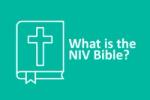
Bible
What is the New International Version (NIV) Bible?
Finding the right Bible isn’t easy. There are dozens of translations and hundreds of editions to choose from. Our new series of guides is here to answer your questions about the different Bibles on offer today.
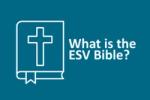
Bible
What is the English Standard Version (ESV) Bible?
Finding the right Bible isn’t easy. There are dozens of translations and hundreds of editions to choose from. Our new series of guides is here to answer your questions about the different Bibles on offer today.
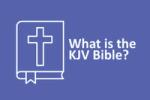
Featured
What is the King James Version (KJV) Bible?
Finding the right Bible isn’t easy. There are dozens of translations and hundreds of editions to choose from. Our new series of guides is here to answer your questions about the different Bibles on offer today.
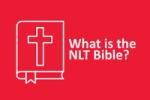
Featured
What is the New Living Translation (NLT) Bible?
Finding the right Bible isn’t easy. There are dozens of translations and hundreds of editions to choose from. Our new series of guides is here to answer your questions about the different Bibles on offer today.
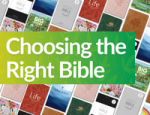
Bible
Choosing The Right Bible
With more than 20 English Language translations each available in 25 or more different editions the choice of Bibles excites and bewilders. Choosing the right Bible for you is important - even if you already have more than one.

Spiritual Growth
LENT COURSES - How to choose the right one for you
Long overshadowed by the celebrations of Easter Sunday, Lent is being rediscovered as a sacred time of reflection and renewal in its own right and a time of preparation for the joyous seasonal finale.
